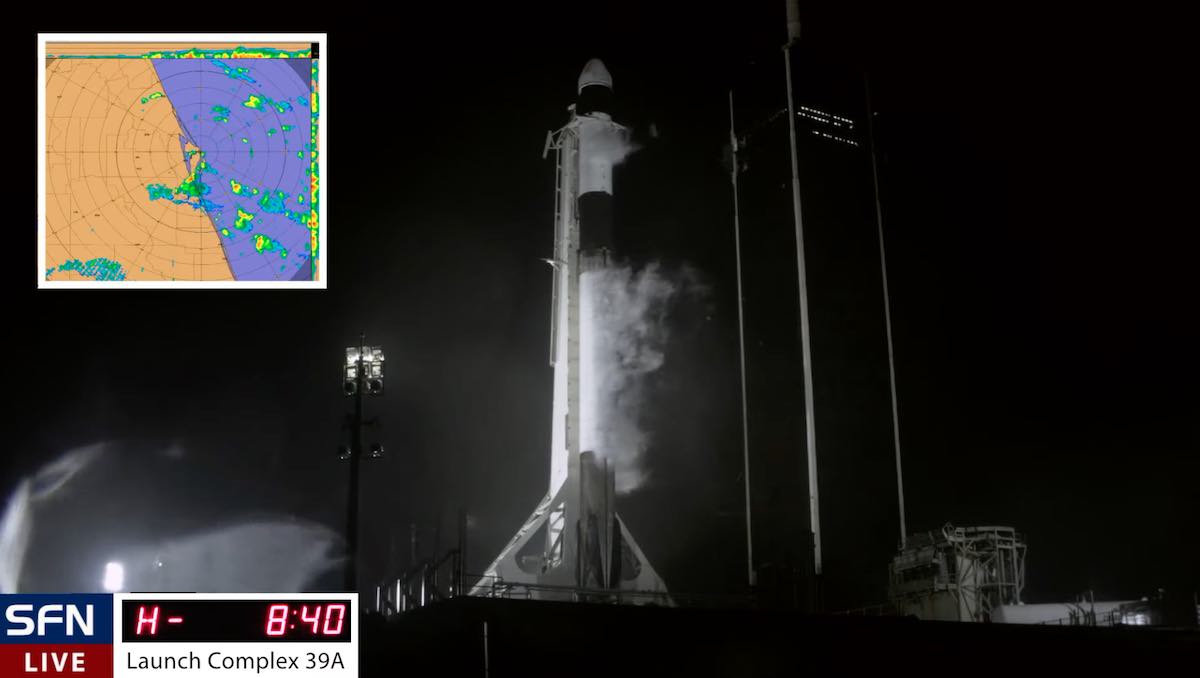
Thunderstorms moving onshore at Cape Canaveral prevented SpaceX from launching a Falcon 9 rocket early Saturday, forcing a one-day delay to the start of the company’s 23rd resupply mission to the International Space Station.
Forecasters predicted iffy weather for Saturday’s predawn launch attempt, and the weather outlook proved accurate as rain showers and storms approached the Florida spaceport from the Atlantic Ocean.
The storms violated multiple launch weather constraints — all associated with the threat of lightning — forcing SpaceX to call off the launch attempt with less than nine minutes left in the countdown.
Officials hoped to launch the 215-foot-tall (65-meter) Falcon 9 rocket at 3:37 a.m. EDT (0737 GMT) Saturday. Instead, SpaceX will try again at 3:14 a.m. EDT (0714 GMT) Sunday to launch the automated cargo mission to the space station.
Forecasters predict slightly better weather for Sunday’s launch opportunity. Assuming the Falcon 9 rocket and Cargo Dragon capsule get off the ground Sunday, the supply ship is scheduled to dock with the space station’s Harmony module at 11 a.m. EDT (1500 GMT) Monday with 4,866 pounds (2,207 kilograms) of experiments, crew provisions, and spare parts.
The Cargo Dragon capsule will remain docked at the station more than a month, allowing time for astronauts to unpack the ship’s pressurized compartment, perform experiments, and load the capsule with equipment tagged for return to Earth.
The spacecraft will undock from the space station and head for a parachute-assisted splashdown off the coast of Florida in late September or early October. The exact return date will hinge on weather and sea conditions in the splashdown zones in the Gulf of Mexico and the Atlantic Ocean.
This mission is the third SpaceX cargo flight to use an upgraded version of the Dragon supply ship. The reusable spacecraft flying on this cargo launch previously delivered supplies to the space station last December, before returning to Earth in January for refurbishment.
The Falcon 9 booster awaiting launch this weekend previously flew to space three times, including a pair of Crew Dragon missions with astronauts and a commercial satellite launch for SiriusXM.
SpaceX’s new rocket landing platform, named “A Shortfall Of Gravitas,” is on station nearly 200 miles (300 kilometers) northeast of Cape Canaveral for landing of the Falcon 9’s first stage booster. It will mark the first rocket landing on the new drone ship, the third such vessel in SpaceX’s fleet.
Email the author.
Follow Stephen Clark on Twitter: @StephenClark1.
